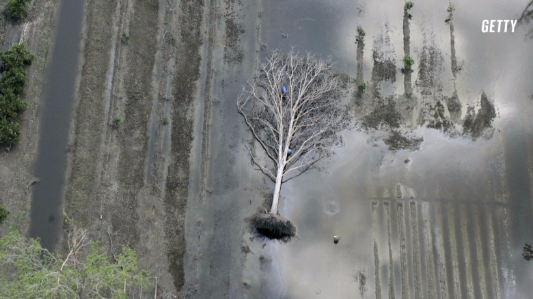This year’s Atlantic hurricane season probably will have fewer storms than normal for the third year running — thanks in part to El Niño, forecasters say.
The Atlantic season, which started Monday, probably will produce six to 11 named storms, forecasters with the National Oceanic and Atmospheric Administration’s Climate Prediction Center said last week.
Three to six of them could become hurricanes, the center predicted.
Both estimates are below the median — about 12 named storms and 6.5 hurricanes, according to Colorado State University’s Tropical Meteorology Project.
What could hold hurricane formation back? That would be warm waters in the ocean to the west, said Gerry Bell, NOAA’s lead hurricane season forecaster.
The phenomenon known as El Niño is back this year. The event, involving the warming of water in the equatorial Pacific, increases strong wind shear in the Atlantic.
That reduces the intensity of tropical storms and hurricanes and prevents other systems from becoming powerful enough to be given names.
“What El Niño does is it suppresses the hurricane season, mainly during the peak months of the season, which are August, September and October,” Bell told reporters during a news conference in New Orleans last week.
The outlook does not predict how many storms will hit land. Bell warned that the forecast shouldn’t lull people in coastal areas.
“Six to 11 named storms is still a fair amount, so be prepared” to evacuate if ordered, he said.
NOAA pointed to 1992’s Hurricane Andrew, which was one of only seven named Atlantic storms that year. It devastated South Florida, killing at least 26 people and causing $26.5 billion in damage.
The Atlantic hurricane season runs though November 30. The region includes the Caribbean Sea, the Gulf of Mexico and the north Atlantic Ocean.
Last season produced eight named storms and six hurricanes.
The Eastern Pacific hurricane outlook calls for an above-average season — 15 to 22 named storms, with seven to 12 hurricanes, the Climate Prediction Center said.
It is rare for an Eastern Pacific hurricane to affect the U.S. mainland, though some do have an influence on Hawaii.



